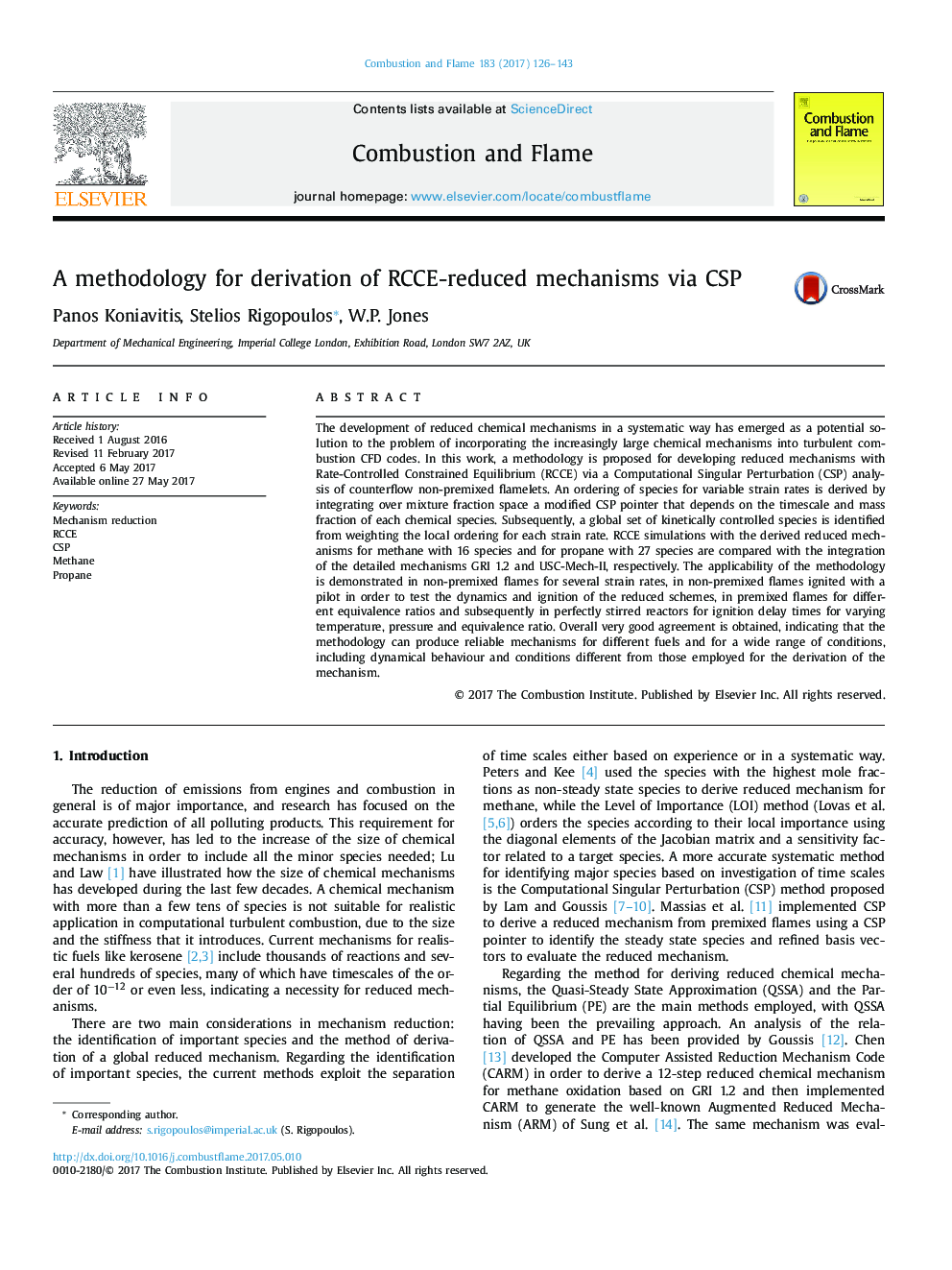| Article ID | Journal | Published Year | Pages | File Type |
|---|---|---|---|---|
| 6468122 | Combustion and Flame | 2017 | 18 Pages |
The development of reduced chemical mechanisms in a systematic way has emerged as a potential solution to the problem of incorporating the increasingly large chemical mechanisms into turbulent combustion CFD codes. In this work, a methodology is proposed for developing reduced mechanisms with Rate-Controlled Constrained Equilibrium (RCCE) via a Computational Singular Perturbation (CSP) analysis of counterflow non-premixed flamelets. An ordering of species for variable strain rates is derived by integrating over mixture fraction space a modified CSP pointer that depends on the timescale and mass fraction of each chemical species. Subsequently, a global set of kinetically controlled species is identified from weighting the local ordering for each strain rate. RCCE simulations with the derived reduced mechanisms for methane with 16 species and for propane with 27 species are compared with the integration of the detailed mechanisms GRI 1.2 and USC-Mech-II, respectively. The applicability of the methodology is demonstrated in non-premixed flames for several strain rates, in non-premixed flames ignited with a pilot in order to test the dynamics and ignition of the reduced schemes, in premixed flames for different equivalence ratios and subsequently in perfectly stirred reactors for ignition delay times for varying temperature, pressure and equivalence ratio. Overall very good agreement is obtained, indicating that the methodology can produce reliable mechanisms for different fuels and for a wide range of conditions, including dynamical behaviour and conditions different from those employed for the derivation of the mechanism.
